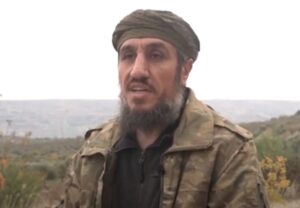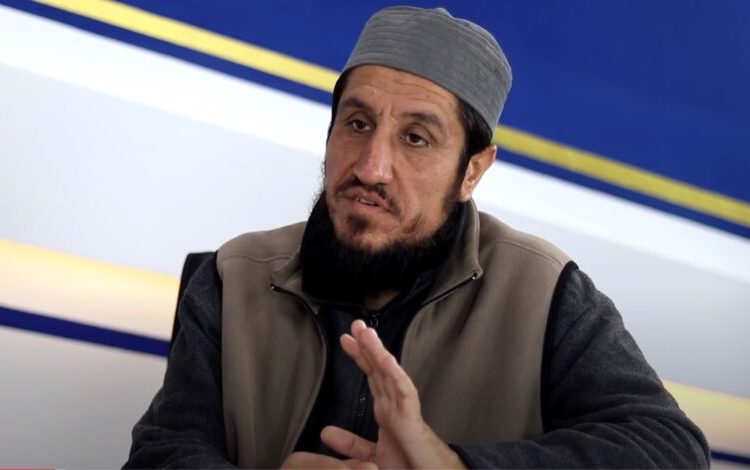Abdullah Bozkurt/Stockholm
The government of President Recep Tayyip Erdoğan quashed a criminal investigation into a Turkish al-Qaeda cleric who moved to Syria’s Idlib province to continue preaching at will in a territory that is under the control of the Turkish military.
Musa Abu Jafar (also known as Ebu Cafer or Ebu Sumeyye, real name Musa Olgaç) is a Salafist cleric who has worked in various countries from Pakistan to Egypt. He was the target of a Turkish prosecutor in Istanbul who was investigating al-Qaeda networks in Turkey in 2011 as part of case file No. 2011/2221. He was in Pakistan and embedded with al-Qaeda cells there,
The police, under orders from the prosecutor’s office, secured a wiretap warrant for his wife Zeynep to identify other members of the cell. A wiretap dated March 17, 2012 showed that he was using his Pakistani phone to reach out to militants in Turkey to facilitate their travel abroad for jihadist goals. He was trying to bring his wife and his daughter to Pakistan to join him.
The investigation revealed that he helped many to join armed jihadist groups in Syria, from al-Qaeda to the Islamic State in Iraq and Syria (ISIS). He even helped establish a cell in Egypt and dispatched Turkish militants under the pretext of learning Arabic and doing Islamic studies. The safe house Abu Jafar managed in Cairo was raided by Egyptian law enforcement in 2007. He spent three-and-a-half months in jail before he was handed over to Turkey.
Secret wiretap, obtained by a court order, shows how Abu Jafar communicated from Pakistan:
On February 18, 2011 Abu Jafar moved to Pakistan, escaping a police operation two months later when 42 al-Qaeda suspects were detained, on April 12, 2011. He continued to stay under the radar as the investigation expanded. He was a wanted man and would soon be arrested as the police were closing in on his inner circle and monitoring his phone communications with his family back in Turkey.
However, the prosecutor and police chiefs were prevented by the Erdoğan government from moving forward with the investigation in January 2014, and all al-Qaeda investigations and surveillance/monitoring programs had been halted by March 2014. The government did not want the trafficking of fighters, Turkish and foreign, interrupted by law enforcement. Turkish intelligence agency MIT, under the control of Islamist figure Hakan Fidan, wanted a free hand in helping jihadists to move and procure supplies including arms as they fought to topple the Bashar al-Assad government in Syria.

Escaping the crackdown with the help of the government, Abu Jafar’s group became more visible in Turkey. The group and others, including Abu Hanzala (real name Halis Bayancuk), another prominent jihadist cleric who encouraged many young men to join al-Qaeda and ISIS in Syria, held a public prayer on July 29, 2014, openly calling for jihad.
Abu Jafar moved to Syria and set up a base of operations in Idlib province, which is under the control of the Turkish military and its proxy Syrian fighter groups. He continues to post videos in Turkish on YouTube and Facebook, luring young people to the jihadist cause. His network in Turkey, especially in Istanbul’s Eyüp and Şirinevler districts, is still active, running its own mosques and holding study groups.
Police intelligence note on Abu Jafar, dated April 6, 2012 shows how the al-Qaeda network has been moving aspiring jihadists out of Turkey:
The Turkish criminal justice system has systematically and deliberately been failing in cracking down on ISIS and other jihadist cells given the Islamist policies of the current Justice and Development Party (AKP) government, led by President Erdoğan, who harbors sympathetic views for jihadists.
Nordic Monitor has published multiple reports based on confidential documents and whistleblower accounts showing how Turkish intelligence worked closely with ISIS and al-Qaeda militants to promote the Erdoğan government’s political agenda.
For instance, three high-profile ISIS militants suspected to have been deployed for a major attack on the French Embassy in Ankara had been caught at the border by the Turkish military and briefly detained but were let go pending trial by a court and are currently at large. Turkish intelligence and military officials had secret talks with ISIS on several occasions. Hundreds of ISIS militants have been freed from Turkish prisons in recent years, reflecting the permissive attitude of Turkish officials when it comes to jihadists.












